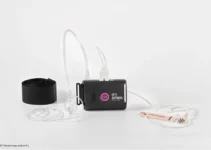Experiencing hypersensitivity following a teeth whitening procedure can be quite discomforting. This common issue arises when the bleaching agents used in the whitening process temporarily expose the dentinal tubules in your teeth, leading to sensitivity. To mitigate this, it’s crucial to use products with lower concentrations of bleaching agents or those enriched with potassium nitrate, which can help block the pathways that nerves in your teeth use to sense temperature changes. Additionally, maintaining good oral hygiene, using a soft-bristled toothbrush, and avoiding extreme temperature foods can minimize discomfort and promote faster recovery.
Understanding Teeth Whitening and Hypersensitivity
Teeth whitening is a popular cosmetic dental procedure that helps achieve a brighter, more radiant smile. Despite its widespread use, a common side effect associated with teeth whitening is teeth sensitivity or hypersensitivity. Understanding the underlying mechanisms and factors contributing to this sensitivity is crucial for both patients and dental professionals. Whitening products typically contain bleaching agents like hydrogen peroxide or carbamide peroxide. These agents penetrate the enamel to break down stains and discoloration on the teeth. However, in doing so, they can also irritate the dental nerves and lead to temporary hypersensitivity. Some individuals may experience more pronounced sensitivity due to variations in enamel thickness, pre-existing dental conditions, or the concentration and duration of the whitening treatment.
Addressing teeth whitening and hypersensitivity involves a combination of choosing the right products, employing proper techniques, and understanding individual patient needs. By being informed, patients can take appropriate measures to minimize sensitivity and enjoy the benefits of a whiter smile with minimal discomfort.
What Causes Teeth to Become Sensitive After Whitening?
The primary cause of teeth sensitivity after whitening is the penetration of bleaching agents into the tooth structure. Hydrogen peroxide and carbamide peroxide can diffuse through the enamel and dentin layers, reaching the pulp where the nerves reside. This penetration can lead to transient irritation and inflammation, causing a sensation of sensitivity.
Several factors can influence the degree of sensitivity experienced:
- Concentration of the bleaching agent: Higher concentrations of bleaching agents are more effective at removing stains but can also lead to greater sensitivity.
- Duration of exposure: Extended contact time with the whitening agent can increase the likelihood of sensitivity.
- Individual variations: Differences in enamel thickness, existing dental issues, and overall oral health can affect sensitivity levels.

Another contributing factor is the condition of the enamel before treatment. Enamel that is already worn down due to brushing habits, diet, or other factors may be more susceptible to the effects of bleaching agents. Additionally, certain whitening methods, such as in-office treatments versus over-the-counter products, can produce varying degrees of sensitivity based on their formulation and application.
Common Symptoms of Whitening-Induced Sensitivity
Sensitivity caused by teeth whitening often manifests as a sharp, shooting pain that occurs when consuming hot or cold foods and beverages. Some individuals might experience a more generalized discomfort or a tingling sensation in their teeth. It’s important to note that this sensitivity is usually temporary, resolving within a few days to a week after the whitening treatment.
Common symptoms of whitening-induced sensitivity include:
- Sharp pain when eating or drinking hot, cold, or sweet items.
- Tingling sensation: A prickly, uncomfortable feeling in the teeth.
- Generalized discomfort: Broad aching or discomfort in the mouth.
For individuals experiencing significant discomfort, using products specifically designed for sensitive teeth, such as toothpaste containing potassium nitrate or fluoride, can help manage and reduce symptoms. Moreover, dentists can recommend desensitizing treatments or suggest modifying the whitening regimen to mitigate sensitivity.
Understanding the nuances of teeth whitening and its associated hypersensitivity is essential for achieving the desired results safely and comfortably. For more insights on effective dental care and cosmetic procedures, explore our other articles and enhance your knowledge further.
Effective Treatments for Hypersensitivity
Dental hypersensitivity is a common issue faced by many individuals, causing discomfort and pain when consuming hot, cold, sweet, or acidic foods and beverages. Understanding the underlying causes and treatment options is essential for managing this condition effectively. Hypersensitivity often results from exposed dentin, typically due to enamel erosion, gum recession, or other dental issues. With advancements in dental care, there are several effective treatments available to alleviate the symptoms of hypersensitivity.
In this article, we will explore various approaches to treating dental hypersensitivity, ranging from over-the-counter solutions to professional dental treatments. It’s important to consult a dentist to determine the most appropriate treatment based on the specific cause and severity of the hypersensitivity.
Over-the-Counter Solutions
One of the most accessible ways to manage dental hypersensitivity is through over-the-counter (OTC) solutions. These products are readily available and can provide significant relief for mild to moderate cases of hypersensitivity. Here are some popular OTC options:
- Desensitizing Toothpaste: Specially formulated to reduce sensitivity by blocking the transmission of sensations from the tooth surface to the nerve. These toothpastes often contain ingredients like potassium nitrate or stannous fluoride.
- Mouth Rinses: Fluoride mouth rinses can help strengthen tooth enamel and reduce sensitivity. They are easy to incorporate into daily oral hygiene routines.
- Gels: Desensitizing gels can be applied directly to sensitive areas of the teeth, providing targeted relief. These gels often contain similar active ingredients as desensitizing toothpaste.
When using OTC solutions, it’s essential to follow the product instructions carefully. Consistent use over time can enhance the effectiveness of these treatments. For instance, desensitizing toothpaste typically requires several weeks of regular use before significant relief is experienced. While these solutions can be very effective for many people, they may not be sufficient for more severe cases of hypersensitivity.
It’s also worth noting that maintaining good oral hygiene is crucial in managing hypersensitivity. Brushing twice daily with a soft-bristled toothbrush, flossing regularly, and avoiding highly acidic foods and beverages can help prevent further enamel erosion and gum recession, which are common contributors to hypersensitivity.
For those experiencing persistent or severe hypersensitivity, it is advisable to seek professional dental care. Dentists can offer a range of treatments, from fluoride varnishes to more advanced procedures tailored to the individual’s needs.
Preventing Hypersensitivity After Whitening
Teeth whitening can be an excellent way to enhance your smile and boost your confidence. However, it is not uncommon for individuals to experience tooth hypersensitivity following a whitening procedure. Understanding the causes of this sensitivity and taking the necessary steps to prevent it can make your whitening experience more pleasant. In this article, we will discuss effective methods to prevent hypersensitivity after whitening, including professional dental advice, home care tips, and recommended products.
Whitening treatments often involve the use of bleaching agents that can temporarily make your teeth more sensitive. This sensitivity usually occurs due to the removal of surface minerals and the slight drying out of the teeth. While the discomfort is generally temporary, it can be quite bothersome. Fortunately, there are several strategies you can employ to minimize or prevent this sensitivity altogether.
Professional Dental Advice
Before undergoing any teeth whitening procedure, it is essential to consult with a dental professional. They can provide tailored advice based on your specific dental condition. A thorough examination can help identify any underlying issues such as tooth decay or gum disease that might exacerbate sensitivity.
Your dentist may recommend a custom whitening tray rather than over-the-counter products. Custom trays ensure that the bleaching agent is evenly distributed and minimizes contact with the gums, reducing the risk of hypersensitivity. Additionally, dentists often use desensitizing agents before or after the whitening treatment to further mitigate any discomfort.
If you experience significant sensitivity, your dentist might suggest a gradual whitening approach. This involves shorter whitening sessions over an extended period, allowing your teeth to acclimate and reducing the likelihood of severe sensitivity.
Home Care Tips
After a whitening procedure, there are several home care practices you can adopt to minimize sensitivity. One effective method is to use a desensitizing toothpaste that contains compounds such as potassium nitrate or stannous fluoride. These ingredients help block the pathways from the tooth surface to the nerve, reducing sensitivity.
Another useful tip is to avoid consuming very hot or very cold foods and beverages immediately after whitening. Temperature extremes can exacerbate sensitivity, so sticking to lukewarm or room temperature options can help.
Maintaining good oral hygiene is also crucial. Use a soft-bristled toothbrush and avoid brushing too aggressively. Gentle brushing helps protect the enamel and prevent further irritation. Additionally, rinsing your mouth with lukewarm water after meals can help maintain oral hygiene without causing additional sensitivity.
Recommended Products
Several products on the market are specifically designed to alleviate tooth sensitivity after whitening. Desensitizing toothpastes, as mentioned earlier, are highly effective. Brands such as Sensodyne, Colgate Sensitive, and Crest Sensi-Relief are popular choices that provide relief from sensitivity.
Fluoride mouth rinses can also be beneficial. These rinses help strengthen the enamel and reduce sensitivity. Look for products that contain a moderate amount of fluoride to avoid overexposure while still providing the necessary protection. For those looking for a more intensive solution, desensitizing gels are available. These gels typically contain higher concentrations of desensitizing agents and can be applied directly to the teeth as needed. However, it is advisable to consult your dentist before using such products to ensure they are appropriate for your specific case.
By following these professional recommendations, home care tips, and using the right products, you can significantly reduce or even prevent tooth hypersensitivity after whitening. For more detailed advice and related topics, consider exploring other articles in our dental care series.
Frequently Asked Questions
Here are some common questions about managing and preventing hypersensitivity after teeth whitening, providing you with the knowledge to achieve a brighter smile comfortably.
What causes hypersensitivity after teeth whitening?
Hypersensitivity after teeth whitening procedures often results from the tooth enamel being temporarily exposed to various whitening agents that penetrate the tooth to break down stains. This exposure can irritate the nerve endings in the dentin layer beneath the enamel, leading to increased sensitivity, especially to temperature variations and acidic foods.
How can I minimize tooth sensitivity after whitening my teeth?
To reduce tooth sensitivity following a whitening treatment, use toothpastes formulated for sensitive teeth, which help to soothe nerve endings and rebuild enamel. Additionally, avoiding extremely hot or cold beverages and using a soft-bristled toothbrush can prevent further irritation. If symptoms persist, it might be wise to consult with your dentist for potential treatments such as fluoride gels or desensitizing agents.

My name is Salman Kapa, a 73-year-old expert in bone regeneration and dental implantology. With decades of experience in the field, I am dedicated to advancing our understanding of oral health and hygiene. Through my research and writing, I aim to contribute to the development of innovative solutions in dental care.




